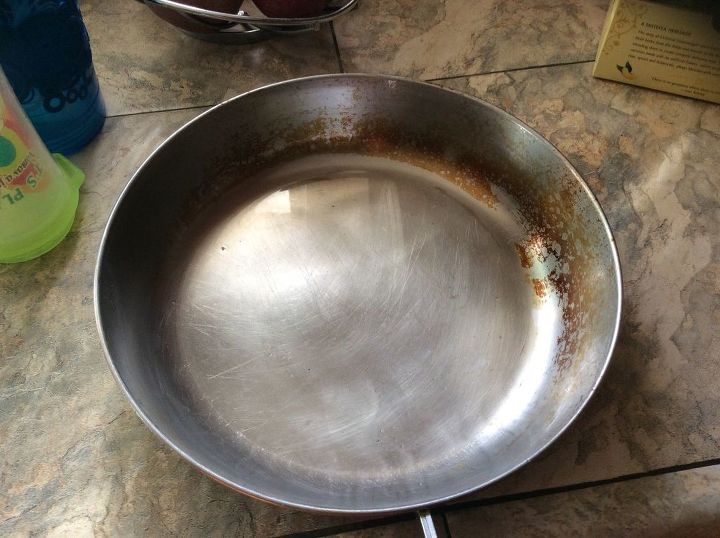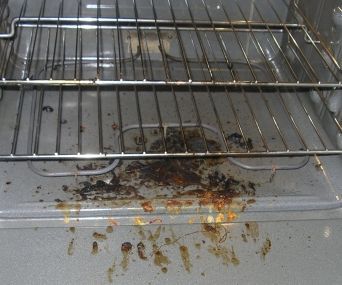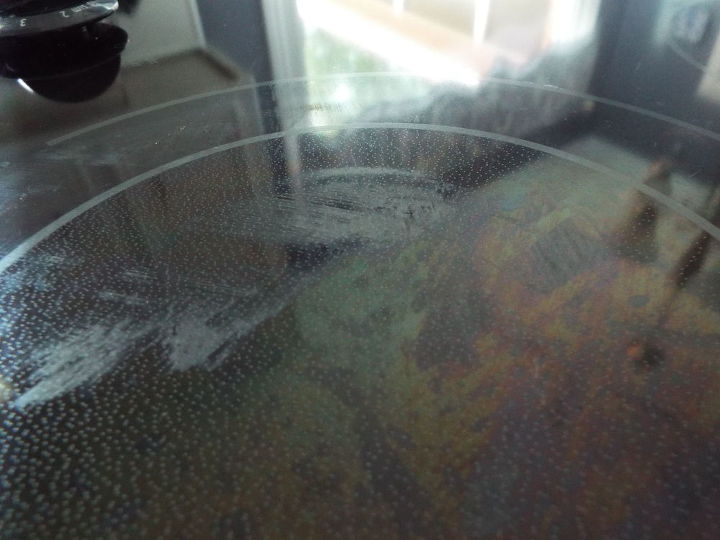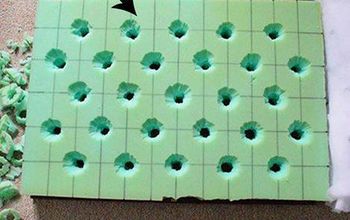How to keep spray bottle from getting destroyed by bleach?
Related Discussions
How to clean a mirror without streaks?
Every time I clean my mirrors, they end up having tons of streaks and almost look worse than before I started. What could I use to clean them that won't leave streaks... See more
How to clean burns on stainless steel pans?
Help! I burned my pan. How do I clean stainless steel cookware that's been burned?
How to clean shower doors
How to clean glass shower doors
How to clean hardwood floors in the kitchen?
What is the best way to clean hardwood floors in the kitchen?
How to clean my kitchen cabinets from grease?
My kitchen cabinets are embarrassingly greasy. Please share your degreasing tips with me so I don't have to cringe every time I glance at my cabinets.
I've had my stove (Maytag) about two years and have never cleaned the
oven. Until recently, it didn't need it. Now it does. I've never had a self-cleaning oven until this one and after quickly reading the instructions, I'm hesitant to t... See more
Can anyone suggest a way to get this off of my glass cook top?
Ok so I moved into my current home a little over a year ago. The cook top was here when we moved in and it has these horrible stains? I have had glass cook tops befor... See more




Just mix up what you need. The bleach corrodes or melts the plastic mechanism. Have you tried using vinegar instead?
Try using vinegar and water. Vinegar is a antibacterial product. Or risnse the plastic spray pieces at end of each use
Use an old bleach bathroom cleaner spray bottle. That plastic is different from the Walmart brand. There's one where the tube goes all the way to the bottom of the container and every drop is used.
There are different types of containers for different uses. Always read the labels for safety reasons. Check Home Depot and Lowes for proper sprayers. The other option is to only mix your bleach & water when you need it and wash out the container when finished. Best of luck. Be safe.
There is ONLY ONE WAY to keep a bleach sprayer working. That is to remove the sprayer after using, spray clean, even soapy water through it, and cap off the bleach bottle until next usage.
If you want bleach to actually sanitize your surfaces, you have to mix it fresh every 24 hours anyway, so just rinse the bottle each day.
can bleach kill you
Yes! Bleach will burn your skin. If inhaled, it will irritate your lungs and even damage them. We use it in pool cleaning (swimming pools) to kill algae and just about anything else in the water. We have to wear masks (for breathing), gloves on our hands, And we are careful NEVER spill it on our skin or anything else as it will burn almost anything it touches.So, yes, insufficient quantities, either on the skin or inhaled, or ingested (drank). Nasty stuff if not used properly.
I got here because I've got the same frustration. A number of chemical-resistant trigger-sprayers are sold, and most use stainless-steel springs and Viton seals, but for some reason the mfrs can't seem to make the PLASTICS last, specifically the screw-cap. (Yeah, the same basic cap that's on every bottle of Clorox and last for years without cracking apart.)
Seek on.
I am a maniacal user of Clorox (outdoor bleach) for cleaning/washing (almost) anything. The lifespan of sprayers that I use typically does not exceed about 3 months. Being frustrated with this ongoing issue I performed a few 'autopsies' of general purpose spray bottles (from ACE hardware) that underwent failures of the pumping mechanism. The result was pretty clear - the pistons of pumps have rubber elements that act as seals of the system. Prolonged exposure of rubber to Clorox results after some time in its disintegration. Other (plastic) elements of the pumping mechanism are not visibly affected by Clorox. Using 'Chemical Resistant' spray bottles by Harris (also bought from ACE hardware) does not help, as they also fail in the same manner. I am aware of original Clorox spray bottles, but I have not tested them yet with the 'outdoor grade' Clorox over extended time. I suspect that concentration may be a factor affecting longevity of the sprayer pump.